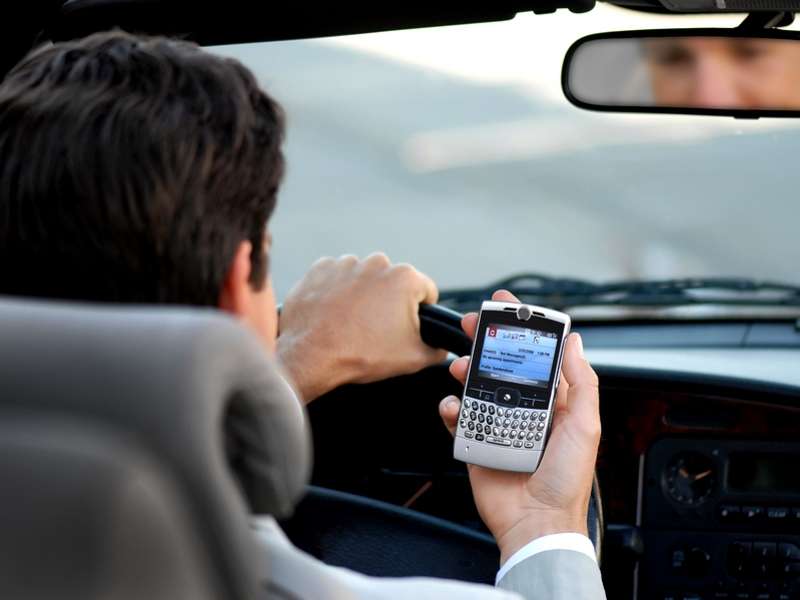Recent Articles
Popular Makes
Body Types
Texting While Driving
Though statistics are scarce, texting and driving bans are not.

With the recent explosive proliferation of internet-capable and keyboard-equipped cell phones, texting while driving is a prominent subject in current affairs. While numerous studies over the past decade have examined distracted driving and general cell phone use while driving, few major studies have focused on texting while driving, and statistics are harder to come by. But it has been established that using a cell phone while driving is a major distraction, and the most common one at that. The National Highway Traffic Safety Administration (NHTSA) and the Virginia Tech Transportation Institute sponsored a 2005-2006 study showing that the number of accidents and near-accidents caused by talking or listening on the phone is almost the same as those caused by dialing. Dialing occurs less often than talking or listening, but is a more distracting activity. In fact, it triples the chances of having a crash or near-crash. Now consider how much more often people text compared with dialing, and how many more characters are being typed (or read) compared to a 7-digit or 10-digit phone number (or fewer if using speed dial). Things can, and usually do, occur very quickly on the road, and every extra second spent looking away from the road is another moment in which anything can happen. It's easy to see the implication that texting while driving is likely a much larger distraction and thus more dangerous than dialing or talking. Wikipedia defines texting while driving as "the act of composing, sending, or reading text messages, email, or making other similar use of the internet on a mobile device while operating a motor vehicle, such as an automobile, truck, or train." You may be snickering at the train part, but a 2008 commuter train crash in Chatsworth, California killed 25 people, and it’s believed that the operator was texting and driving immediately before the accident. The Federal Motor Carrier Safety Administration and Virginia Tech found that truck drivers who text are 23 times more likely to have accidents or near-misses than truckers who don’t text and drive. They also discovered that texting while driving takes your eyes off the road for an average of 4.6 seconds out of every six. (Not looking at the road for more than two seconds is deemed dangerous.) To put that in perspective, in 4.6 seconds at 55 mph a vehicle would cover the full length of a football field without its driver looking at the road. Though texting is a seemingly small thing, those few moments can obviously impact a great number of lives, especially where large modes of transportation are involved. So the government is increasingly taking action. In 2009, President Obama banned federal employees from texting while driving government vehicles and from texting on government-provided phones or on official business in their own cars. In January 2010, the federal government also outlawed texting by big rig, bus, and other commercial vehicle drivers. Just last week, both Connecticut and Georgia signed new laws banning texting while driving. They join a bevy of other states – more than half of the U.S. now – that have already made driving and texting illegal, most in just the past year. Will it be enough to stop people from texting and driving? Will it decrease the number of texting while driving accidents? It will be difficult to tell. Interestingly, a study performed by the Highway Loss Data Institute investigating the effects of hand-held cell phone bans on number of automobile insurance collision claims found no evidence that the laws are reducing the amount of overall accident claims. However, this doesn't change the fact that texting and driving is a significant and dangerous distraction. If people aren’t smart enough to realize that on their own, then bans on texting and driving are at least a step in the right direction. But if steep fines or other legal penalties aren’t enough to discourage more drivers from texting while driving, avoidable accidents will certainly continue. And some people will inevitably pay with their lives. Next time you're driving and find yourself reaching for your cell to read or write a text message, stop and think about that.